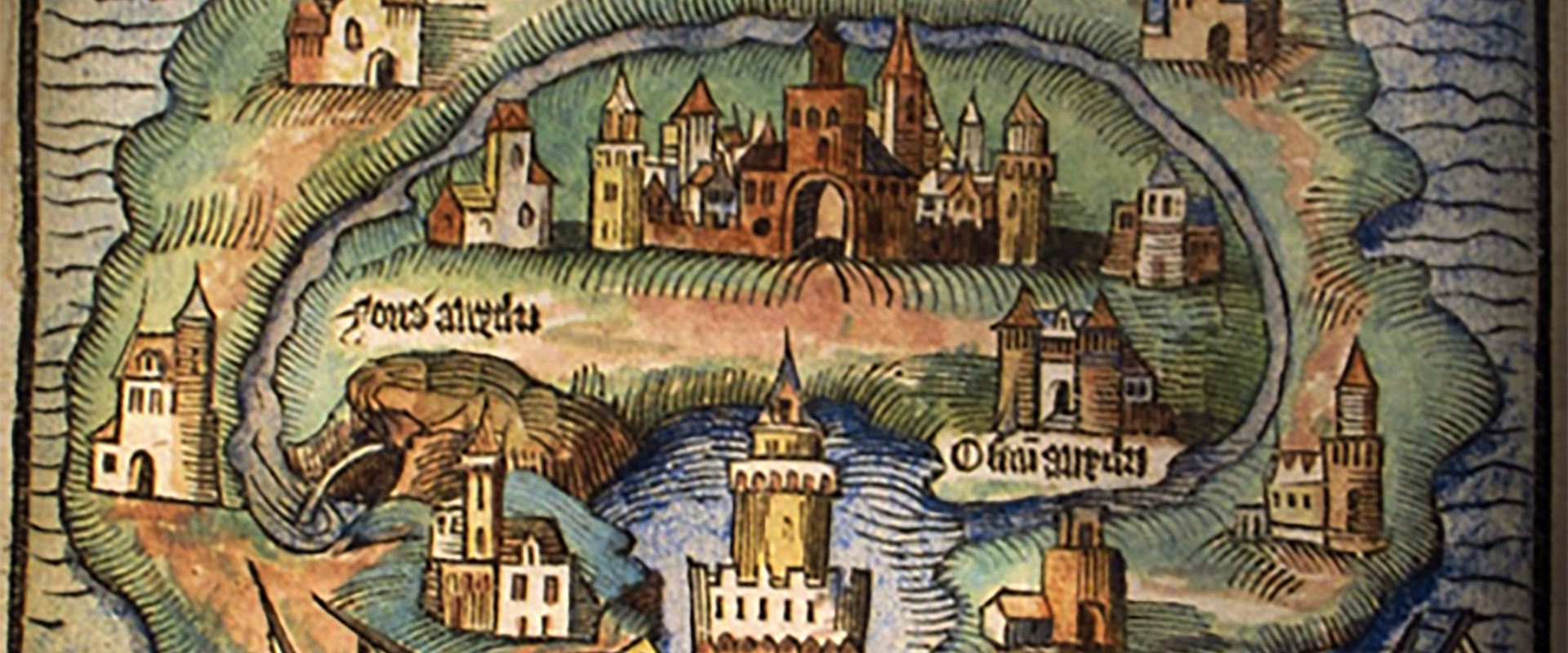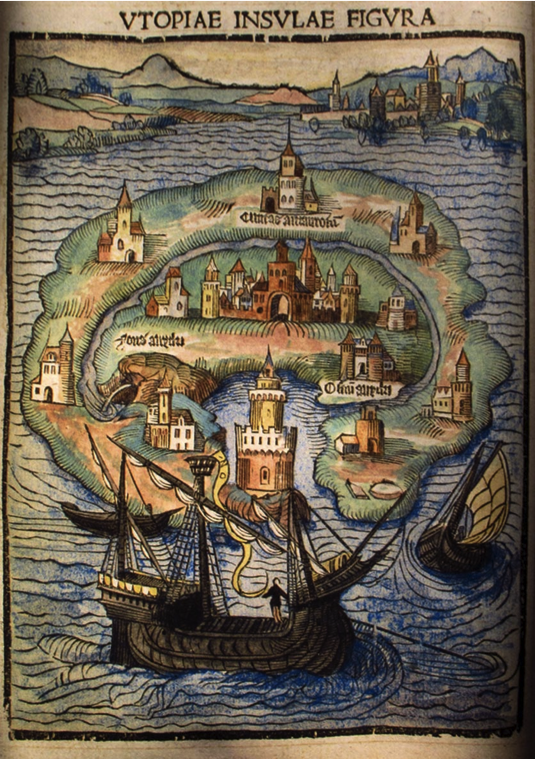Only Dreamers See the Future

It is no coincidence that Thomas More set Utopia on an island. He was a teenager when the Americas were discovered, a time when the world learned that more was possible than we knew. He could not have known that this discovery would change everything, with 1492 sparking a series of events that would propel humanity to become a very different species, one which today could no longer survive as most people survived then. More was imaginative, but no human is capable of imagining change on the scale that has occurred. The search for utopias is the constant attempt to stretch our imaginations over what is possible.
Four centuries later Oscar Wilde wrote that the only worthwhile maps of the world were ones that included utopia. Utopia was no longer a sensible object of derision. So much was changing so quickly that clearly the near future would be very different from the recent past and so what mattered was how the future could be shaped and how we, with our limited imaginations, could try to look into the fog of possibilities. The worldwide emancipation of women that was well under way then was clearly one of the greatest changes to the species. Men had almost always dominated before and males did in almost all other mammal species, but the change is only clear in hindsight and few men saw it coming. We are changing as a species.
For all eternity humans have watched their children often die before them. Such suffering was thought unavoidable up to a century ago when over a tenth of the children of even the richest people in the world, the English servant-keeping classes, died in childhood. Today child mortality rates in China are falling so fast that within a year or two they could be as low as in the United States. Already less than 1 per cent of babies born in China die before their first birthday. On the island of Iceland only two in every thousand infants die and the rate is still falling. Worldwide rates are falling fastest such that we know that they cannot fall any faster than they are now, because they cannot fall below zero. Never have we known such progress, but only a very few people saw this as possible just a few decades ago. Utopians are rare, but becoming more common.
The utopians have consistently been proved right in the long run. Our species is transforming into something new. We now understand that it was not the Gods that suddenly decided that almost all children should live to see adulthood. Our agonising about dystopia is the main way we achieve progress. We rightly complain about all the greed, selfishness and stupidity in the world. Occasionally we need to recognise what this complaining achieves. And then we move on to look out for the next island of possibility. What world into which almost all our children will now survive is possible, especially now that we each on average now have so few children because we can be so sure that they will live?
Read PDF version of draft illustrated Prospect Magazine article
